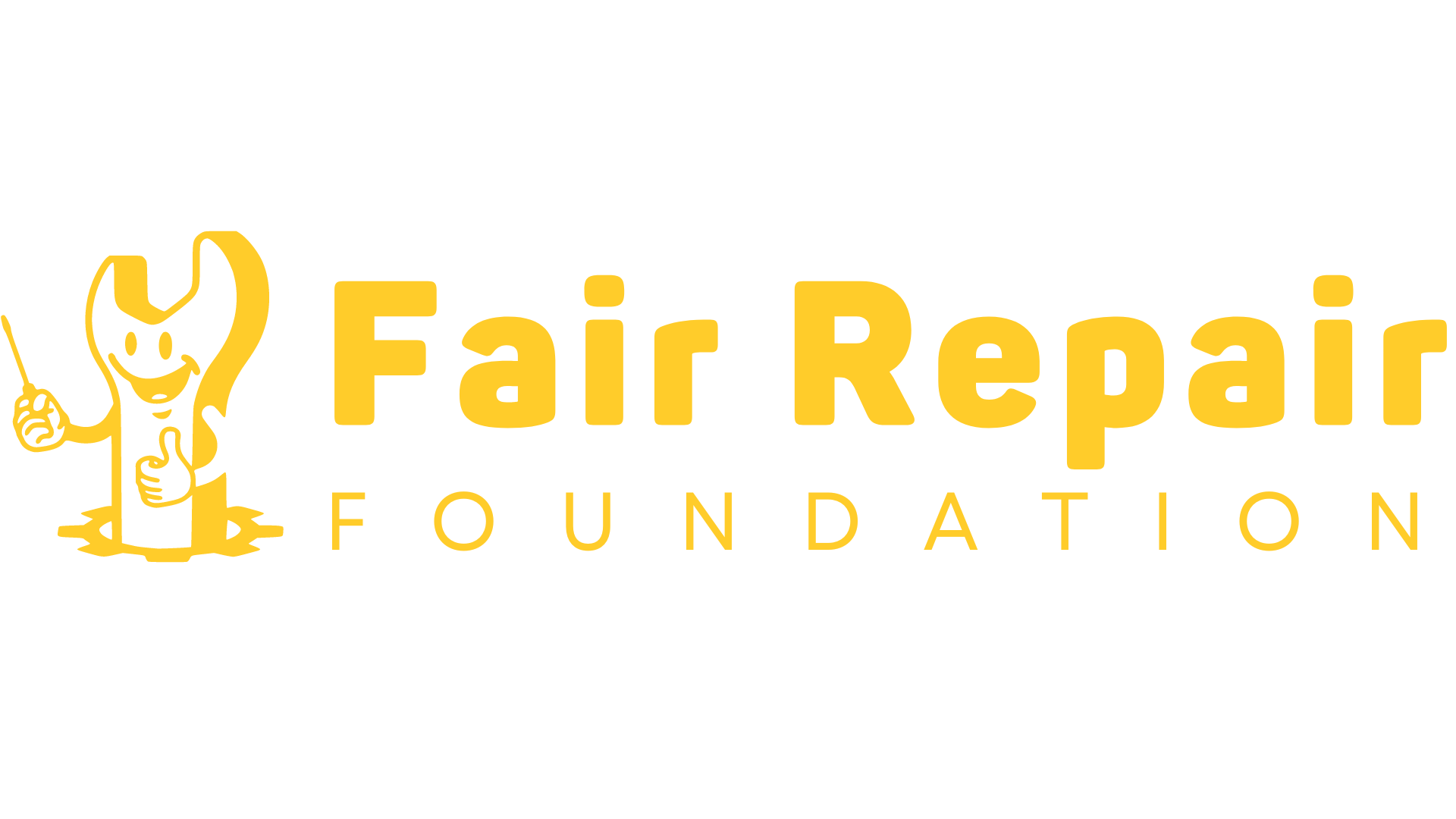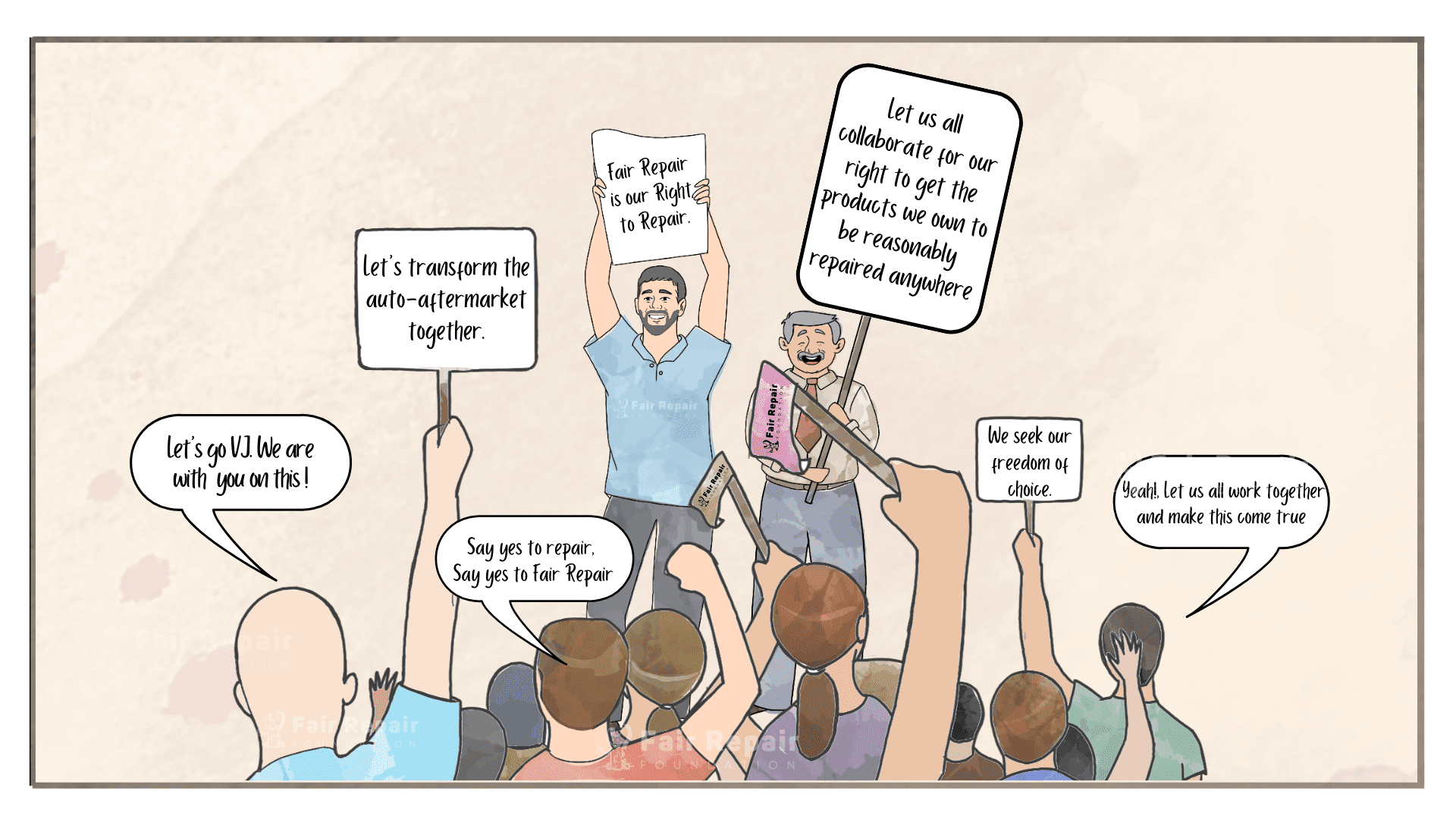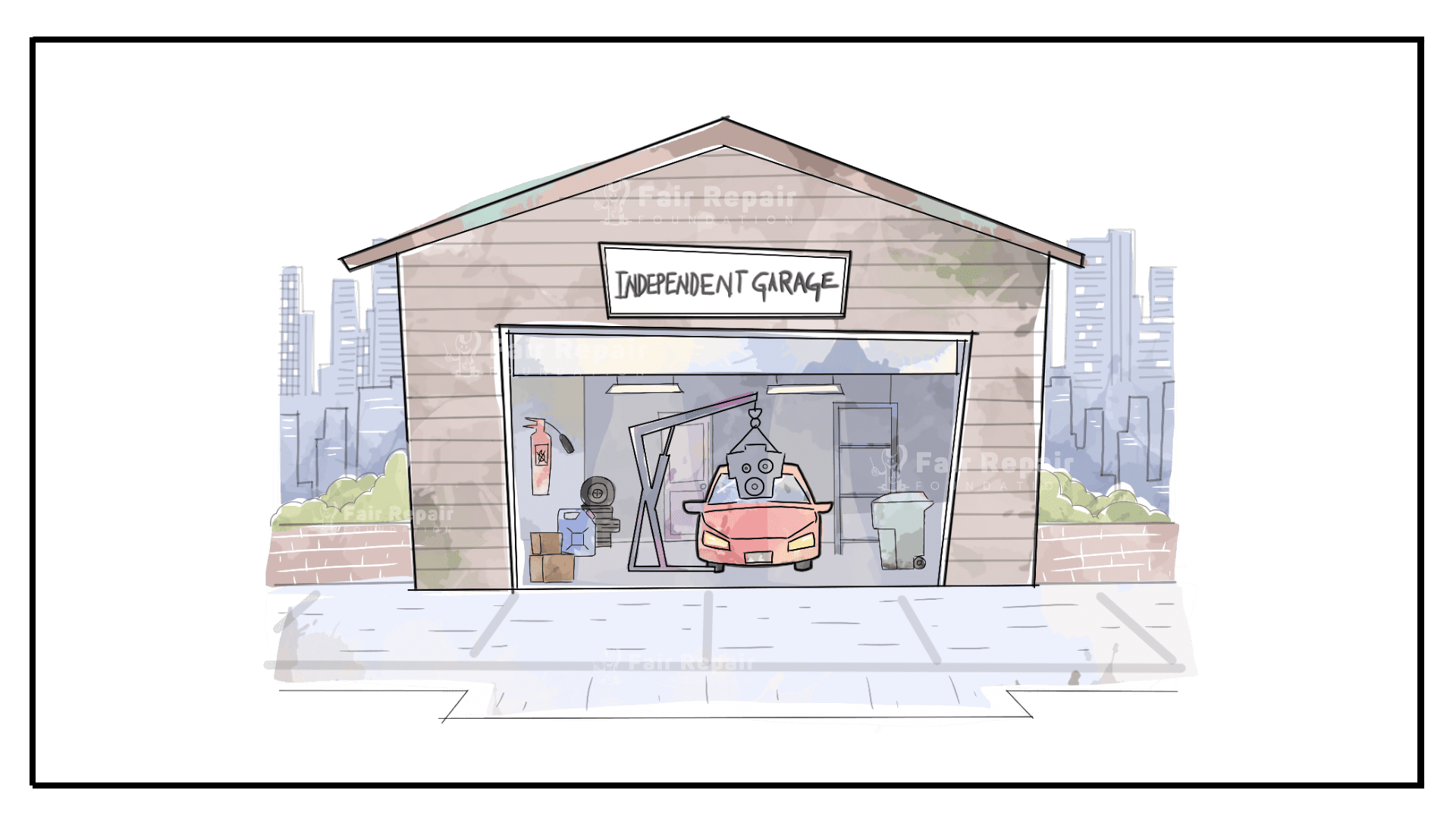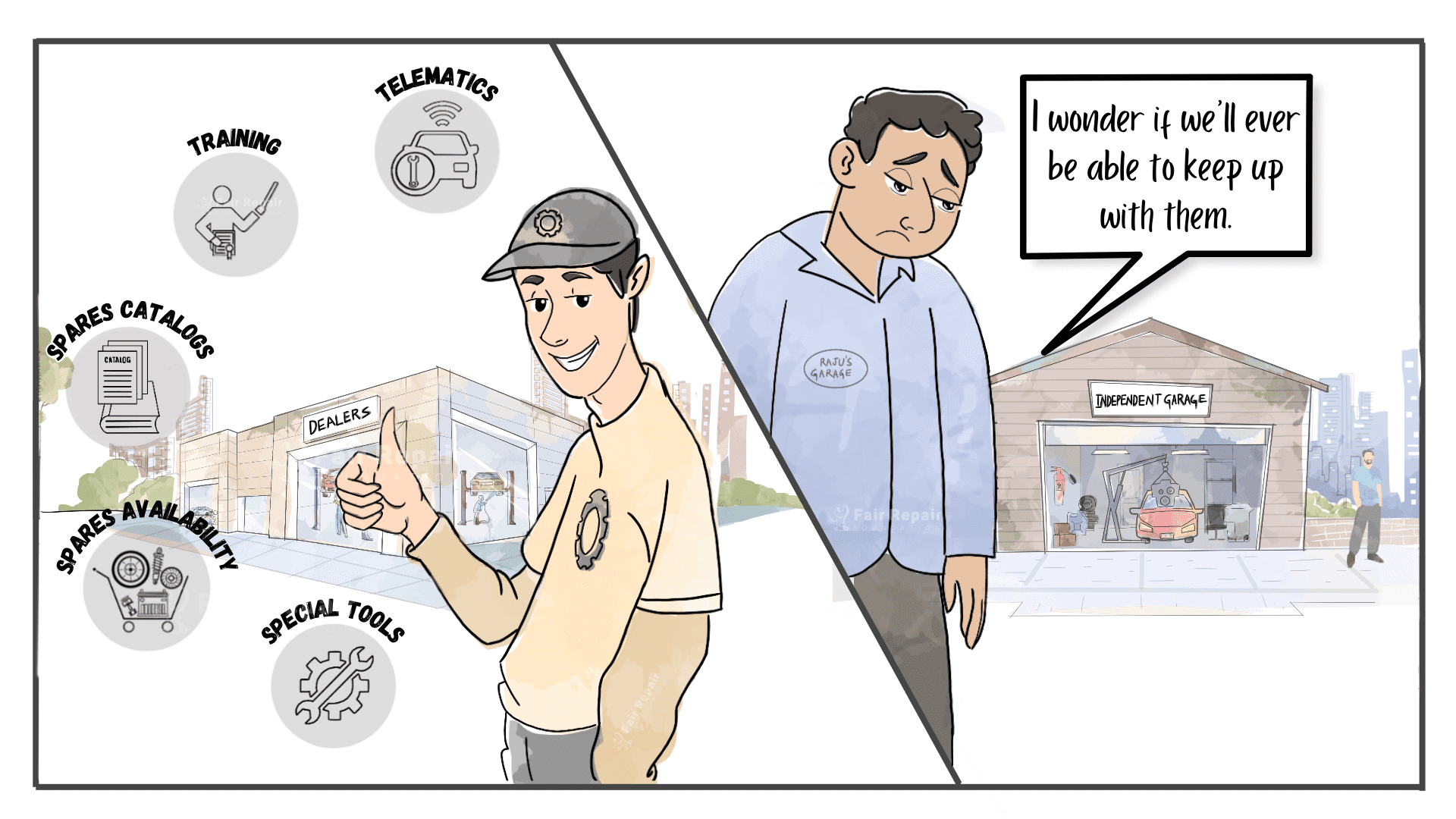
Why it’s not fair game?
Imagine being in a place where your fundamental human rights are traded for monetary gain.
Manufacturers are now incorporating advanced technologies into automobiles, making their service outside the dealer network very difficult. Our legal rights are compromised when contracts fail to give us, the vehicle/product owner, complete authority. Fundamentally, monopolization of repair methods violates the “freedom of choice” of the consumer.
As a vehicle owner, the lack of Fair Repair causes you tremendous inconvenience, such as:
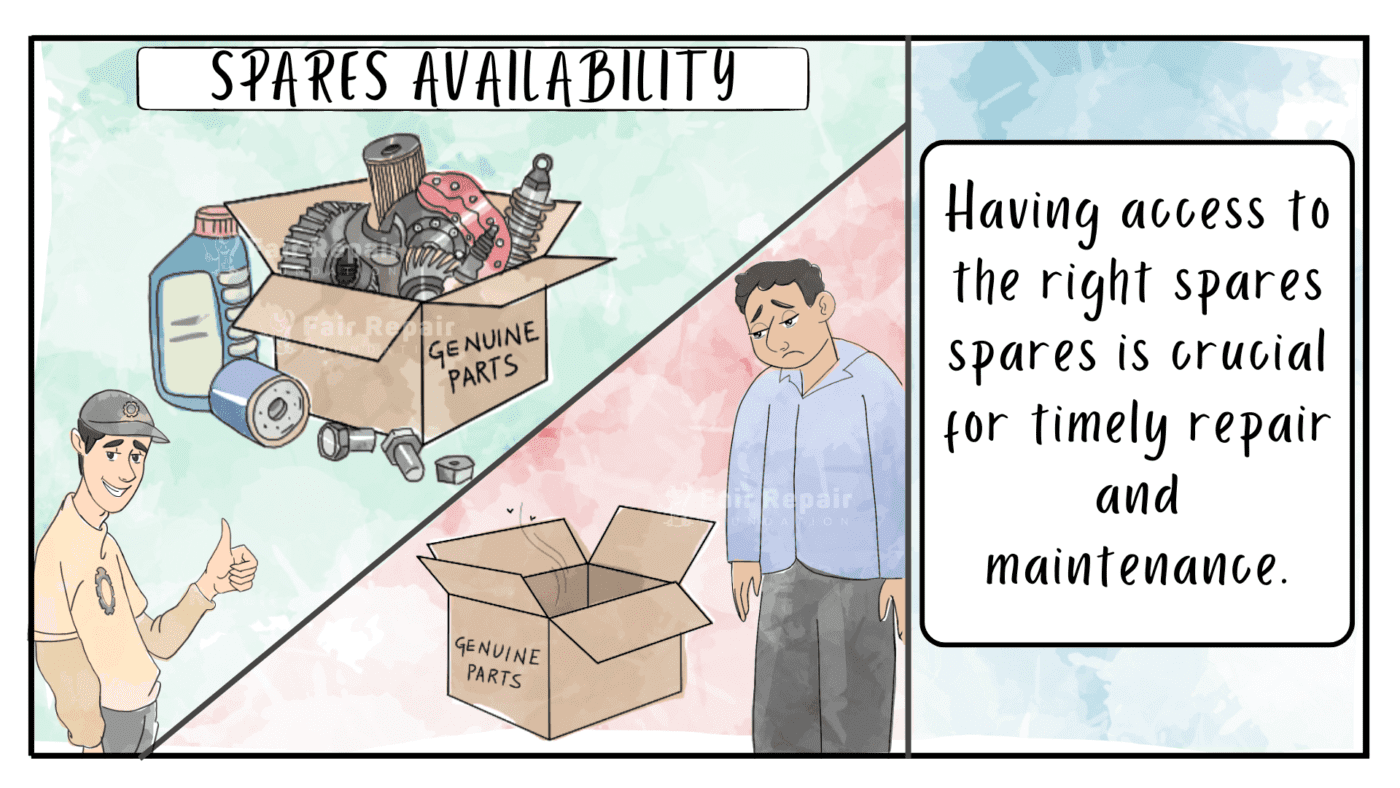
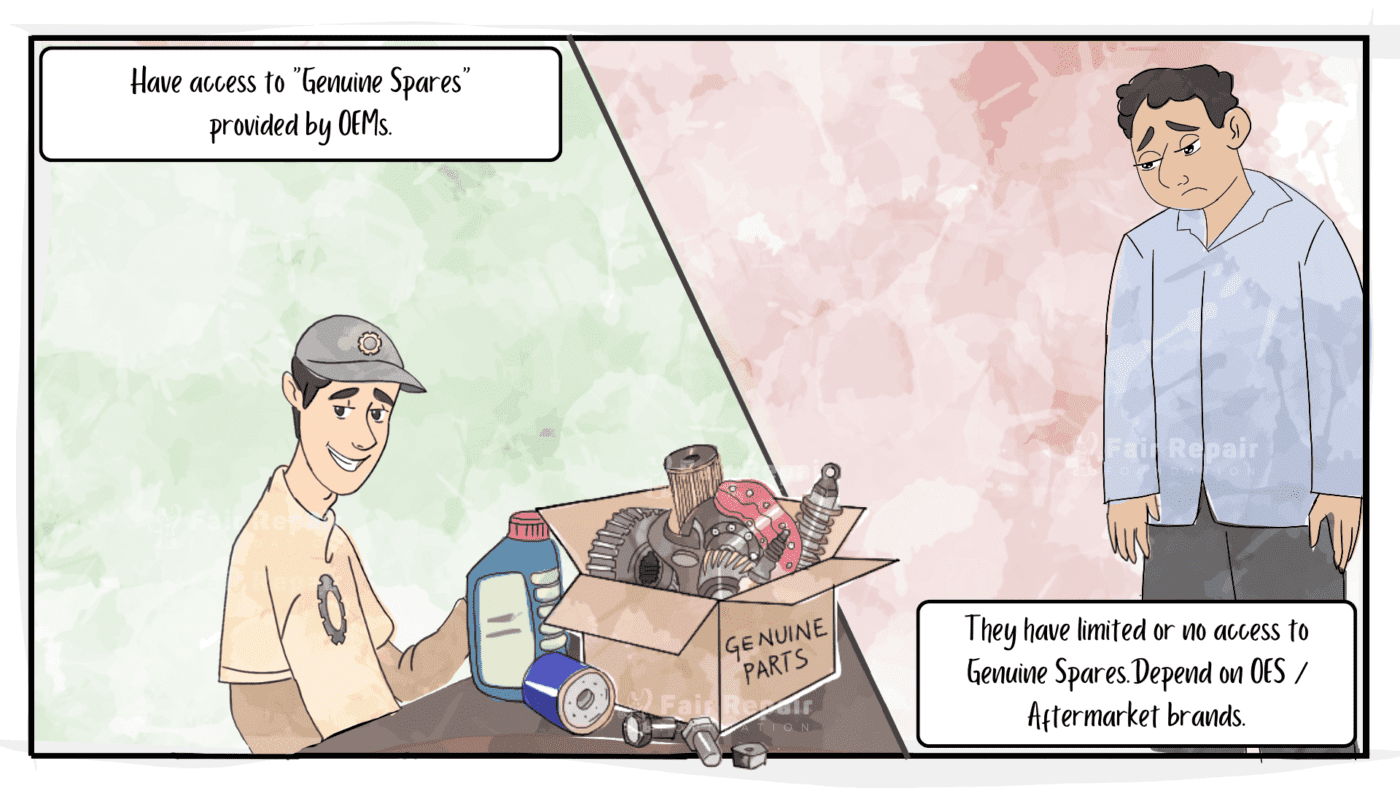
While you are the vehicle owner, your ability to pick a repair and maintenance option that works best for you is limited – causing you tremendous inconvenience and incurring unnecessary costs.
Today, the following is the status of Genuine Spares (OEM) availability in India. Simply said, it means that where parts are only available via the OEM Dealer, car owners are inconvenienced (see above) with a lack of alternatives and burdened with higher costs.
Other brands not mentioned herein (e.g. Mini Cooper, Rolls Royce, Aston Martin, Bentley, McLaren, Maserati, Bugatti) also do not sell spares in the open market.
The automotive aftermarket is constituted of and supported by authorised and independent repairers, auto component manufacturers, distributors & suppliers, diagnostic tools and garage equipment producers, trade groups, roadside assistance operators, motorist clubs, insurance companies, marketplace operators and data/information technology providers.
In addition to the consumer, all these entities are aggrieved by the status quo.
Right to Repair around the world

The Right to Repair is a rising global movement based on the premise and principle that it is our Right to get the products we own and use to be reasonably repaired anywhere we want, at a price best suited to us.
Many democratic nations (USA, the UK, South Africa, Australia, and Countries in the EU) have acknowledged the need for Fair Repair and have already passed relevant regulations. As the world’s largest democracy, the Right to Repair in India must establish a leading, forward-thinking, best-in-class policy that enables us to own what we buy completely; therefore, allowing us to repair and customise the product with ease and at an honest price rather than being subjected to the whims of manufacturers for repairs.
Consumers are not the only ones fighting for the Right to Repair legislation. Environmentalists believe users will use their products longer if fixes are more readily available and inexpensive. As a result, the consumption of fewer natural resources and higher energy efficiency could be encouraged across all stages of production.
Following are some references to regulations passed / legislative actions initiated worldwide:
- United States of America: Fair Repair Act 2022
- European Union: Right to Repair
- United Kingdom: Right to Repair
- Australia: Right to Repair
- South Africa: Right to Repair
- Canada: Right to Repair
Many non-profit and voluntary organisations worldwide are actively involved in building awareness and driving regulations to enable a level playing field.

